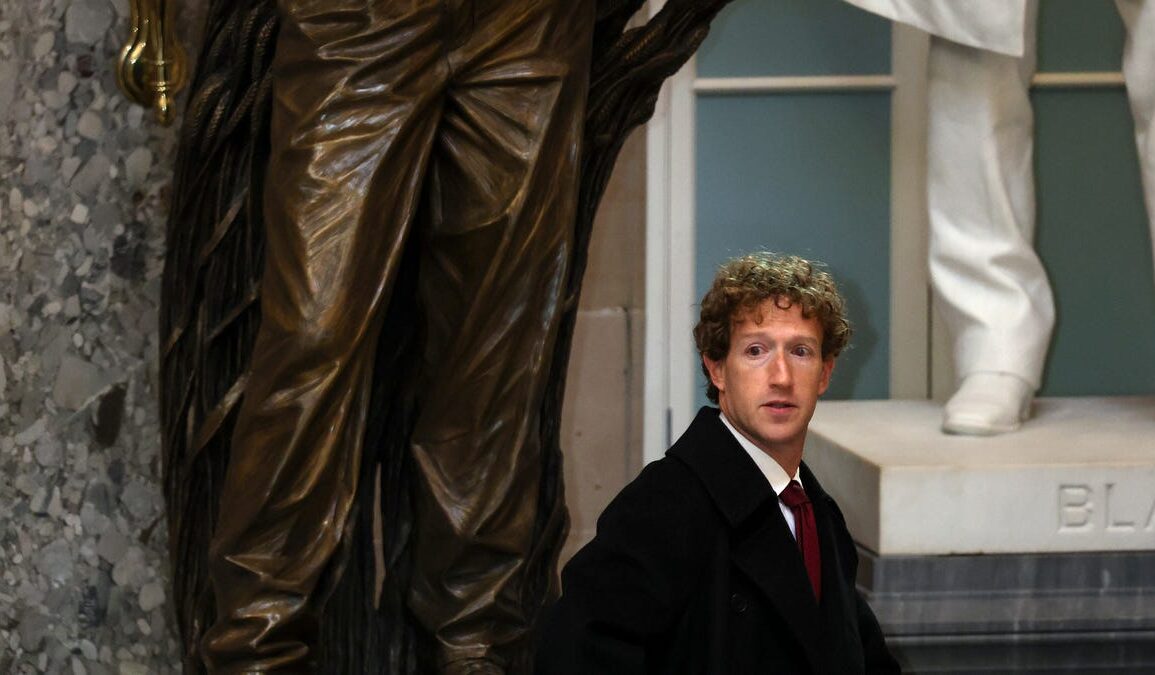
The Federal Trade Commission told a federal judge Monday that Meta illegally acquired WhatsApp and Instagram as part of a larger strategy to buy or crush up-and-coming rivals.
The agency argued in its opening arguments before the U.S. District Court for the District of Columbia that the social media giant’s acquisitions caused the company to invest less in making Facebook a better product, while depriving users of more vibrant social media app options.
“They decided that competition was too hard and it would be easier to buy out their rivals rather than compete with them,” FTC lawyer Daniel Matheson told the courtroom Monday.
The Federal Trade Commission’s lawsuit, first filed in 2020, is the latest effort by antitrust regulators to rein in the power of dominant Silicon Valley firms. For years, big tech critics have argued that major internet platforms have become monopolies, stifling competition and consumer choice. Even Republicans, who are traditionally known for their pro-business agenda, have criticized Meta and other companies over the control they wield over speech online.
The stakes of the case against Meta are high. If U.S. District Judge James E. Boasberg sides with the FTC, the social media giant could be forced to divest itself of Instagram and WhatsApp, which it bought in 2012 and 2014, respectively, and which have bolstered the company’s advertising business and reach abroad.This year, Instagram is expected to represent slightly more than half of the company’s revenue from the American market, according to analytics firm eMarketer.
The FTC argues that Meta has a monopoly in the personal social networking market, which it defines as apps that help users maintain relationships with their friends and family. By that measure, the government says Meta’s next biggest competitor is the ephemeral messaging app Snapchat. Meta argues that “personal social networking” is a mischaracterization of its marketand that it competes in a much broader internet ecosystem that includes TikTok, YouTube and X.
The government also says that top Meta executives saw Instagram and WhatsApp as threats to their business and bolstered its case with internal correspondence from CEO Mark Zuckerberg and others showing their concern about the popularity of those apps at a time when the company was struggling to adjust to the mobile app age.
The FTC’s case uses a relatively novel strategy to argue that consumers have been harmed by what it considers to be Meta’s anticompetitive practices, rather than the strategy it typically used in antitrust cases, which often look at whether prices have gone up as result of a merger. Slade Bond, who helped lead a years-long congressional inquiry into Meta and other tech giants as chief counsel to the House antitrust subcommittee beginning in 2019, said the trial will test the capacity of existing laws to address modern monopoly power.
Meta’s defense relies on “antiquated precedents around what an antitrust market is,” said Bond, who now leads public policy and legislative affairs at the law firm Cuneo Gilbert & LaDuca. “We need these courts to pull antitrust into the 21st century.”
After squashing its would-be competitors, the FTC argues, Meta invested less in Facebook, giving users less privacy and lower-quality advertising. Meta argues that the FTC’s evaluation of product quality is inadequate and that the tech giant invested resources to grow the apps.
The trial is expected to include testimony from high-profile current and past Meta executives.
The FTC’s initial lawsuit against Meta, filed under President Donald Trump in 2020, was dismissed in June 2021 by Boasberg. He ruled that the government had failed to show enough evidence to prove that Facebook held a monopoly over the “personal social networking” market.
The FTC later refiled its suit in August 2021, and Boasberg allowed it to move forward, finding that the government had strengthened its case with more evidence. In November, Boasberg denied Meta’s motion for summary judgment, saying the parties’ arguments so far leave “no clear victor” and the case “must go to trial.”
The FTC is pursuing this case at a time when the tech sector has been seeking to align itself with the Trump administration in hopes of securing a better regulatory environment. Most recently, Zuckerberg traveled to the White House to lobby the administration to get the FTC to resolve the lawsuit, The Washington Post and other outlets have reported.
– – –
Will Oremus contributed to this report.
This post was originally published on this site be sure to check out more of their content








